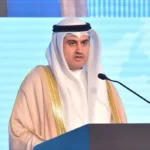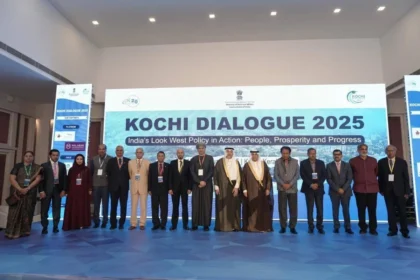
INTERNATIONAL NEWS NETWORK
The 8th Indian Ocean Conference, held in Muscat on February 16, 2025, brought together leaders and policymakers to discuss the future of maritime cooperation. His Excellency Dr. Araghchi, Honorable Minister of Foreign Affairs of the Islamic Republic of Iran, delivered a compelling speech highlighting the region’s historical significance and Iran’s strategic vision for maritime development.
Dr. Araghchi began by acknowledging Oman’s pivotal role in fostering regional dialogue and economic exchange. Historically, the Indian Ocean has served as more than a body of water; it has been a crucial trade corridor linking India, Africa, Indonesia, the Persian Gulf, and beyond. The ocean has facilitated cultural exchange and economic growth for centuries, shaping civilizations through its extensive maritime networks.
However, as global economic and technological landscapes evolve, traditional trade routes and old patterns of commerce are no longer sufficient. Dr. Araghchi stressed the need to transform the Indian Ocean into a hub of strategic and economic cooperation rather than just a transit route. The conference’s theme, “Voyage to New Horizons of Maritime Partnership,” reflects the necessity of embracing a future where nations collaborate to enhance regional prosperity.
Iran has recognized the importance of a maritime-oriented policy, given its extensive coastline of over 5,800 kilometers, with 4,900 kilometers bordering the Indian Ocean. For Iran, developing a robust maritime economy is not just a strategic choice but an imperative. Ports, maritime transportation, and regional supply chains are central to Iran’s economic vision. A key component of this strategy is the development of the Makran coast, an area that has long been underutilized despite its vast potential.
To unlock this potential, Iran has identified four key objectives for the Makran region:
- Strengthening Local Economies: Iran aims to create sustainable employment and support small and medium-sized enterprises that can integrate into the regional supply chain. Economic empowerment of local communities is essential for long-term stability and development.
- Developing Energy Infrastructure: Recognizing the growing importance of renewable energy, Iran is committed to reducing reliance on fossil fuels and investing in clean energy technologies. A shift towards sustainable energy will enhance regional competitiveness and ensure economic resilience.
- Enhancing Transportation Networks: Establishing a robust network of rail, road, and maritime routes is a key pillar of Iran’s maritime policy. Improved connectivity will not only facilitate trade but also integrate Iran more effectively into the global economy.
- Attracting Investment: Sustainable economic growth requires both domestic and foreign investment. Iran welcomes investors who seek to participate in the development of the Makran region and beyond, fostering a collaborative economic environment.
Beyond economic initiatives, Dr. Araghchi emphasized the necessity of ensuring maritime security. The Iranian Navy has played a significant role in combating piracy, drug trafficking, and organized crime while ensuring safe navigation in the region. He reaffirmed Iran’s position that security should be achieved through regional cooperation rather than external intervention. Iran remains committed to multilateralism, as demonstrated by its active participation in organizations like the Indian Ocean Rim Association (IORA) and the Indian Ocean Naval Symposium (IONS).
Dr. Araghchi also addressed challenges posed by extra-regional powers that seek to exploit political and economic gaps, thereby undermining natural regional cooperation. He emphasized that the future of the Indian Ocean should be determined by its own nations rather than external geopolitical rivalries. Decisions affecting the region must serve the interests of its people, not the agendas of global powers.
In conclusion, Dr. Araghchi praised Oman’s role as a bridge between civilizations and a promoter of constructive diplomacy. He expressed hope that the conference would mark the beginning of a new era of maritime and regional cooperation—one where collaboration replaces division, and sustainable development takes precedence over geopolitical competition. Through mutual trust and cooperation, nations of the Indian Ocean can build a future that ensures prosperity and security for all.










